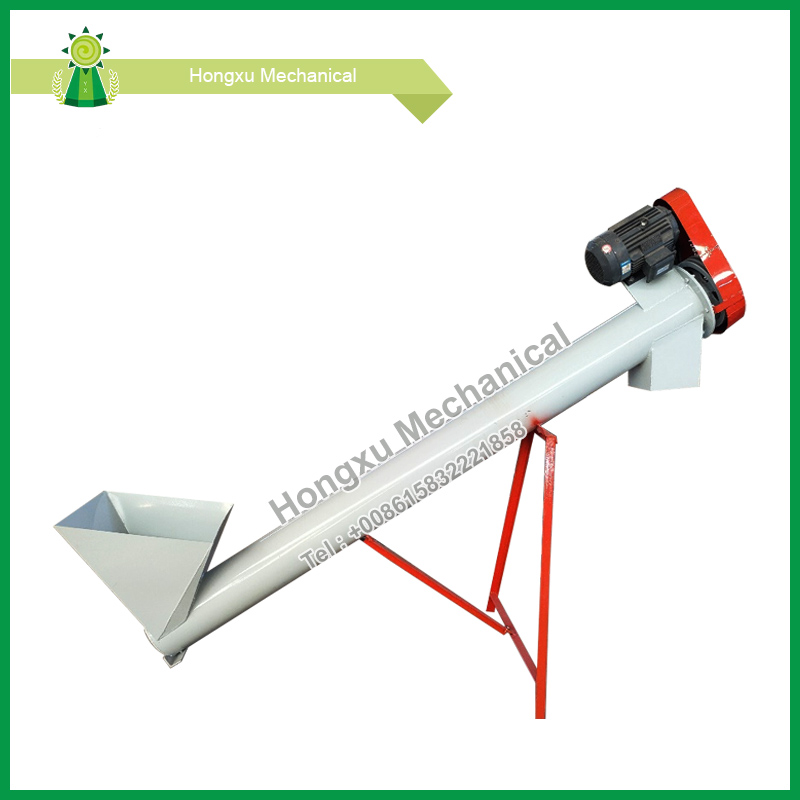Why Is Conveyor Equipment Essential for Modern Industrial Operations?
2025-01-09
In today's fast-paced world of manufacturing and logistics, efficiency is key. From assembly lines to warehouses, the need for fast and accurate movement of goods is more important than ever. This is where conveyor equipment comes into play. But why is conveyor equipment so essential for modern industrial operations? What role does it play in improving productivity and ensuring smooth workflows? In this blog, we'll explore the reasons why conveyor systems have become indispensable to industries across the globe.
What Exactly Is Conveyor Equipment?
At its core, conveyor equipment refers to mechanical devices or systems designed to transport materials, products, or goods from one point to another within a facility. These systems can be used in a variety of industries, including manufacturing, packaging, mining, food processing, and logistics. Conveyor systems come in many forms, including belt conveyors, roller conveyors, chain conveyors, and screw conveyors, each tailored to specific needs.
The main purpose of these systems is to automate the movement of goods, making it easier to move large quantities of materials without the need for human intervention. With their ability to carry heavy loads, handle delicate items, and move products over long distances, conveyor systems are often the backbone of industrial processes.
Why Is Conveyor Equipment Essential?
1. Improved Efficiency and Productivity
One of the biggest advantages of conveyor equipment is its ability to increase efficiency. In environments where products need to be moved quickly and reliably, conveyors automate the transportation process, reducing the time and labor involved. Instead of relying on workers to manually transport items, a conveyor system can continuously move materials from one station to another without interruption.
For example, in a production line, a conveyor system can carry parts from one station to the next, allowing workers to focus on specialized tasks rather than physically moving items. This automation speeds up processes, minimizes downtime, and significantly boosts productivity.
2. Reduction of Labor Costs
Another significant benefit of conveyor systems is their ability to reduce labor costs. By automating material handling, businesses can operate more efficiently with fewer workers. Conveyor equipment can take over tasks that would otherwise require manual labor, such as lifting, moving, or sorting items. This reduction in manual labor not only saves money but also reduces the risk of workplace injuries, as employees aren’t required to perform repetitive and physically demanding tasks.
3. Enhanced Safety
Conveyor equipment plays a vital role in improving safety in industrial environments. Manual handling of heavy or dangerous materials can lead to accidents, injuries, and even long-term health issues for employees. By using conveyor systems, businesses can reduce the physical strain on workers, minimizing the chances of workplace injuries.
Furthermore, modern conveyor systems often come with built-in safety features, such as emergency stop buttons, guards, and sensors that prevent accidents. These safety mechanisms ensure that operations can continue smoothly while protecting workers from potential harm.
4. Handling of a Wide Variety of Materials
Conveyor systems are highly versatile and can be adapted to handle a wide range of materials, from small parts to large packages. Whether you're moving fragile products, heavy loads, or perishable goods, there is a conveyor solution tailored to your needs. For example, belt conveyors are commonly used for transporting lightweight goods, while roller conveyors are better suited for heavier items.
In industries like food processing, sanitary conveyors are used to meet hygiene standards, while vibratory conveyors can be used to move delicate or fragile materials without damaging them. The flexibility of conveyor systems makes them a valuable asset for various industries with diverse material handling requirements.
5. Increased Throughput and Capacity
A well-designed conveyor system can significantly increase the throughput of a production line or warehouse. By automating the movement of materials, conveyors allow businesses to handle higher volumes of goods in a shorter period. This is especially important in industries where high-volume production and quick turnaround times are essential.
With conveyor systems in place, businesses can streamline their operations and meet the demands of fast-paced markets. Increased throughput directly translates to higher production capacity, which means businesses can fulfill more orders and grow their operations.
6. Better Inventory Control and Tracking
Modern conveyor equipment can be integrated with inventory management and tracking systems. This allows businesses to keep track of products in real-time, ensuring accurate inventory levels and reducing the chances of overstocking or running out of stock.
For example, by integrating conveyor systems with barcode scanners or RFID technology, businesses can track products as they move through the production or distribution process. This helps to ensure that the right items reach the right destination at the right time, improving both inventory control and order fulfillment.
7. Space Optimization
Conveyor systems can help businesses optimize their floor space by utilizing vertical or horizontal movement. Rather than relying on workers to move goods through aisles or over large distances, conveyors can be installed overhead or along the periphery of a workspace, freeing up more room for other activities.
In large warehouses, overhead conveyors can move products without taking up valuable floor space, allowing for more efficient use of the available area. This is especially helpful in environments where floor space is limited, and optimizing every square foot is essential.
8. Scalability and Flexibility
As businesses grow, their material handling needs may change. Conveyor systems offer a high level of scalability and flexibility, allowing companies to expand or modify their existing systems to meet new demands. Whether it’s adding more conveyor lines, integrating new equipment, or reconfiguring an existing setup, conveyors can easily adapt to evolving business needs.
This flexibility makes conveyor systems a long-term investment, capable of growing with the business and supporting its changing requirements as it evolves.
9. Environmentally Friendly Solutions
In addition to their efficiency, many modern conveyor systems are designed with sustainability in mind. For instance, energy-efficient conveyors can reduce energy consumption, lowering operational costs and minimizing environmental impact. Some conveyor systems also use recyclable materials and are designed to reduce waste, making them a more environmentally friendly option compared to traditional manual handling processes.
In industries like food processing, eco-friendly conveyor systems ensure that waste materials are properly handled, reducing the overall environmental footprint of the production process.
How to Choose the Right Conveyor Equipment?
When selecting the right conveyor equipment for your business, consider the following factors:
- Type of materials being handled: Different conveyors are suited for specific materials, such as lightweight items, heavy loads, or fragile products.
- Space and layout: Choose a conveyor system that fits within your available space, whether it's horizontal, vertical, or a combination of both.
- Automation needs: Decide if you need a fully automated system with integration to inventory management or simple manual conveyors for smaller operations.
- Speed and capacity: Assess the throughput and speed requirements of your operation to determine the capacity your conveyor system needs to handle.
- Maintenance and durability: Ensure the conveyor system is durable and easy to maintain, as well as adaptable to future needs.
Conclusion: Why Is Conveyor Equipment Essential for Modern Industrial Operations?
Conveyor equipment is no longer just a luxury for large-scale industries; it has become a necessity for businesses looking to improve productivity, reduce costs, and streamline operations. Whether it's increasing efficiency, enhancing safety, or offering flexibility and scalability, conveyor systems play a crucial role in modern industrial operations.



